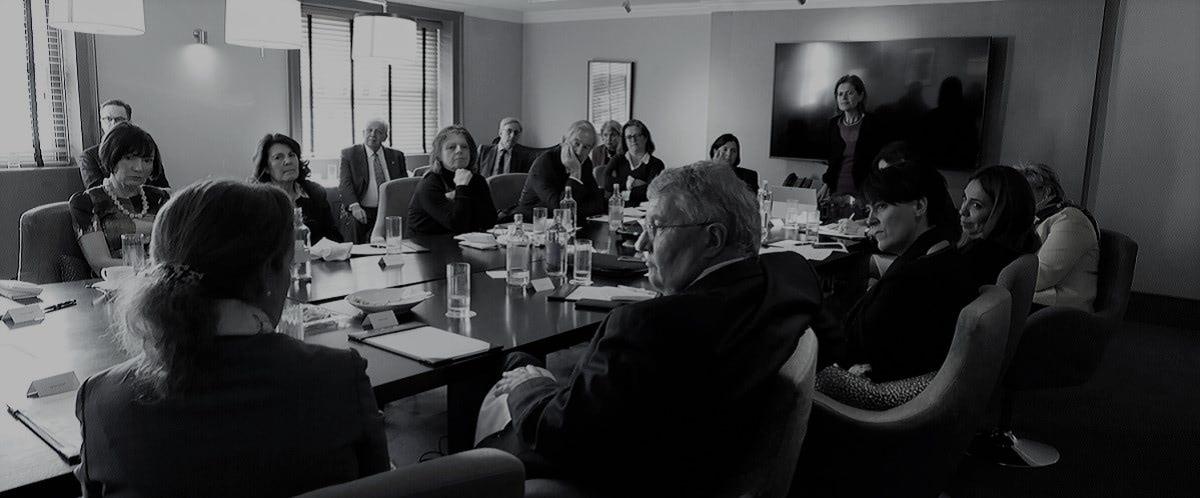Against a backdrop of unprecedented disruption (in particular in the UK), today’s Chair must navigate exceptional complexity.
Chairs are under pressure as never before:
- investors want financial performance
- customer expectations are constantly and rapidly changing
- the regulatory overlay is increasing, and not to be ignored
There’s a clear trend towards increased stakeholder involvement in business and the Board, for example the UK Code’s focus on employee representation. Combined with the more general expectation for quoted businesses to provide societal as well as shareholder value, the risks and challenges for the Chair are numerous. Getting it right may go unnoticed; getting it wrong can be career-ending.
Through Fidelio’s Board Search and Evaluation assignments, we see the extent of the challenge facing the Chair, not least in building a high performing and effective Board. There is also increasing evidence that an underperforming Board – or a complacent Board – contributes to underperformance in the business or organisation.
Moreover, while other diversity metrics improve, gender diversity among Chairs in the FTSE 100 has not done so and is currently in retreat.
Therefore, to support Chairs and Boards in moving their performance up the curve, as well as to develop the pipeline of female Chairs, Fidelio recently held the “Chair Masterclass”. Our focus was to identify the challenges facing the Chair, and to gain practical insights from seasoned and distinguished practitioners into the role of the Chair.
We drew upon Fidelio’s extensive insight and experience supporting Chairs cross-border, cross-sector, cross-function, as well as the experience and expertise of Mike Clasper, Chair of Coats; Lady Barbara Judge, Chair of Astana Financial Services Authority; Professor Bob Garratt, Visiting Professor at Cass Business School; Susan Sternglass Noble, Non-Executive Director of Unity Trust Bank; Elisabeth Lady Stheeman: Non-Executive Director of Korian; Henry Raine, Managing Director of Promontory Financial Group; and Chris Heimann, Head of Improvisation at RADA.
And we were also joined by twenty Chairs, Chairs Designate and Committee Chairs from the UK and internationally.
There’s no silver bullet to being a highly effective Chair but here are some pointers we explored:
A) Leading the Board/Managing the Boardroom
Essential activities for new Chairs include:
- ensuring a practical Board calendar which makes best use of Board and Executive time and allows the issues that matter to surface
- developing a culture in which all Board Members contribute, diversity of opinion is a reality and difficult questions can be asked, while also ensuring the business of the Board is managed efficiently
- establishing an effective relationship with the CEO. This is essential, and potentially fraught
- building a diverse and high performing Board and ensuring the blend of experience and external perspective critical to the Board’s effectiveness and the company’s future
- connecting the Board with the business
- enabling the company secretary to materially enhance the efficiency of the Board
- ensuring the governance of search, selection and succession planning and deriving value from Board Evaluation
B) The Chair as Performer
The Chair is also a “performer“, requiring presence and authority and a high EQ in order to:
- Guide an effective discussion
- Bring influence to bear when necessary
- Build trust, creating a safe environment for debate
C) Dealing with the Regulator
For Chairs in heavily regulated sectors the regulator is a key stakeholder, so that an effective Chair must:
- Build a clear picture of the regulatory agenda: what does the Regulator really want?
- Form a mature understanding of the Do’s and Don’ts for effective regulatory communication
- In Financial Services ensure thorough preparation for pre-appointment interviews with the regulator
D) When It Goes Wrong…
Boards sit where interests collide, and with so much disruption in business today, things can go very wrong. The buck stops with the Chair and so Fidelio also explored how the Chair best prepares for crisis including:
- Common Boardroom mistakes to be avoided in the handling of a crisis
- How to prepare for and manage your Parliamentary Select Committee Hearing
- Managing a shareholder revolt – or better, avoiding one in the first place
- The Board response to an activist on the register.
If you are interested in enhancing Chair and Board effectiveness, and for further details on Fidelio’s Search, Evaluation and Development offering, please contact Gillian Karran-Cumberlege.

